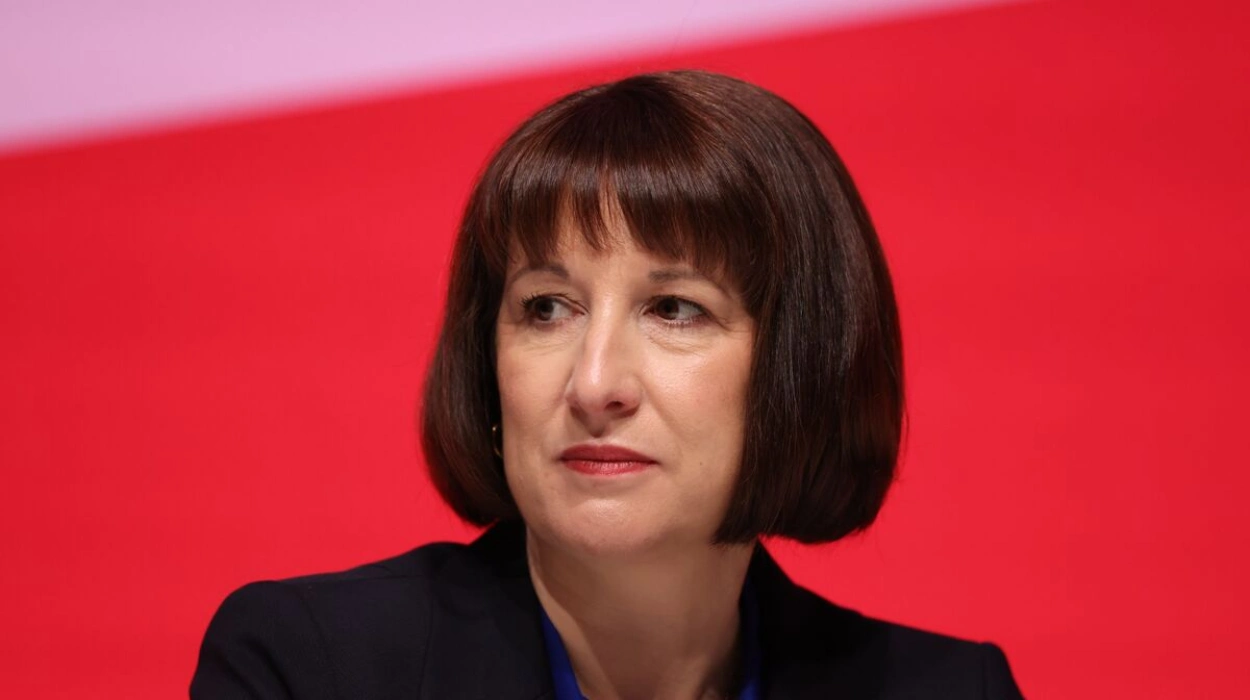UK (Parliament Politics Magazine) – Chancellor Rachel Reeves called for patience amid a £50bn shortfall and rising inflation, pledging steady progress to fix Britain’s economy.
As reported by The Guardian, Rachel Reeves asked the public for patience, saying the change voters sought last summer “won’t happen overnight.”
What did Rachel Reeves say about Labour’s economic plans?
Rachel Reeves insisted, she was “impatient” to bring change. She said ministers had made a start on turning things around, but there was “lots more to do,” with the last Tory government held responsible for financial problems.
Her remarks follow a recent warning from the Bank of England about months of steep price rises ahead, driven by higher food prices.
She stated that her “mission” was to
“end the cycle of decline, tackle the unfairness in our economy, give every community the chance to thrive and to make the lives of every working person better off.”
However, Ms Reeves warned,
“I’m impatient for the change people voted for to be delivered, but I have always known it was never going to happen overnight.”
She criticised the last Conservative government, which Labour says left a £22bn black hole. The chancellor said she faced this challenge when she joined the Treasury last year.
Ms Reeves stated,
“We know whose side we are on – the side of working people who for too long have seen promises made but never delivered, because politicians ducked the big decisions.”
The chancellor accused the Tories of overseeing a decade of “endless spirals of chaos.” She noted that trade agreements with the US, India, and the EU have been secured so far.
What did the Bank of England warn about rising costs?
The Bank of England said the chancellor’s hike in national insurance and the increase in the minimum wage have contributed to higher supermarket prices. It also cut interest rates to 4 percent to support the struggling British economy.
Ms Reeves faces warnings of a £50bn hole in government finances, with economists saying filling it could mean tax increases, spending cuts, and new fiscal policies.
Less than a day after UK Prime Minister Sir Keir Starmer promised the autumn Budget would help “people feel better off,” the forecasts added more pressure on the chancellor.
The central bank warned that headline inflation will rise to 4 percent in September. Food inflation is expected to reach 5.5 percent by Christmas, putting pressure on household spending.
What did NIESR warn about the Chancellor’s budget plans?
The National Institute for Economic and Social Research (NIESR) warned that the chancellor may consider spending cuts in the autumn Budget. The move would address a £41.2bn borrowing gap expected by 2029-30 under her self-imposed “stability rule.”
To rebuild the £10bn “buffer” maintained since last year’s Budget, the chancellor would need to increase revenue by £51.1bn in total.
Stephen Millard, an economist at NIESR, stated,
“We think the current budget deficit will be around £40bn, or £41.2bn to be precise. It means if the chancellor wants to maintain a buffer of £9.9bn, then she will have to find £51.1bn, either in extra taxes or lower spending or both, annually, by 2029-30.”
David Aikman, the NIESR director, added,
“It will be crucial for the chancellor to restore market confidence by demonstrating fiscal discipline. This will require a determined attempt to rebuild the fiscal buffer, and that will inevitably involve gradual but sustained tax increases or spending cuts.”
What did Keir Starmer say about the £51.1bn budget challenge?
Earlier this week, Keir Starmer, during his visit to Milton Keynes, said the Budget would “build on what we’ve done” by focusing on living standards and helping people feel better off.
When questioned about the necessity of tax increases, the PM responded, “Some of the figures that are being put out are not figures that I recognise.”
Mr Starmer stated,
“We’ve stabilised the economy. That means interest rates have been cut now four times. For anybody watching this on a mortgage, that makes a huge difference on a monthly basis to how much they pay.”
He added,
“In the first year, we’ve raised wages as well, both in the private sector plus the minimum wage, which means people have got a bit more money coming into their pocket, and so at this stage that will be set out in the Budget, but the focus will very much be on living standards and making sure people feel better off.”
What did Jonathan Portes say about tax rises and pensioners?
Jonathan Portes, former Treasury adviser and economics expert at King’s College London, said tax rises should mainly target wealthy pensioners.
He added,
“Obviously there is still a lot of uncertainty about how large tax rises should be. I think the basic principle is to be the tax and pension system needs to be rebalanced so that better-off older people, especially those with substantial property and pension wealth, make a much larger contribution to addressing the fiscal pressures that result from increasing spending on the NHS, social care and pensions. Also, it is long past time to raise fuel duty.”
What did Mel Stride say about Labour’s tax plans?
Mel Stride, a Tory spokesperson, slammed the government’s economic handling, saying they “always reach for the tax rise lever because they don’t understand the economy.”
He added,
“Businesses are closing, unemployment is up, inflation has doubled, and the economy is shrinking. And Labour are refusing to rule out more damaging tax rises on investment.”


